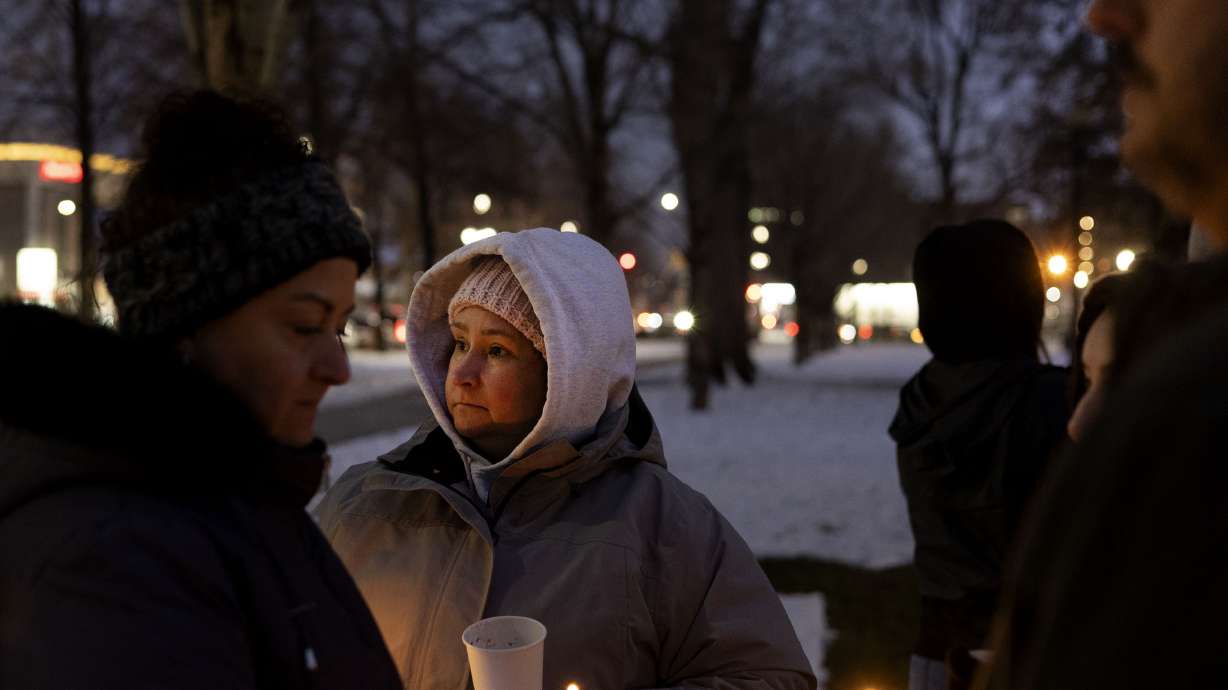Estimated read time: 4-5 minutes
This archived news story is available only for your personal, non-commercial use. Information in the story may be outdated or superseded by additional information. Reading or replaying the story in its archived form does not constitute a republication of the story.
SALT LAKE CITY — A bill aimed to increase homeless shelter options during winter and establish an emergency response to freezing temperatures is headed to Utah Gov. Spencer Cox's desk for approval.
The bill, HB499, was sponsored by Rep. Steve Eliason, R-Sandy, who had passed similar legislation in the 2022 session. The new legislation is meant to address some of the shortfalls discovered this winter after the passing of a law that required leaders to come up with a homeless shelter overflow plan for the winter.
Despite the new framework getting more beds ready faster than ever, the system still fell short — prompting Eliason's bill. The bill received feedback and support from the Utah Office of Homeless Services, with State Homeless Director Wayne Niederhauser aiding in the presentation.
'Code blue,' camping bans and more
The bill addresses a variety of issues raised when working to resolve homelessness across the state. The need for establishing a "code blue" protocol was among the emphasized issues. At least eight unsheltered people have died on Utah's streets this winter season, highlighting the gaps in the homeless system across the state.
The "code blue" would work to prevent deaths on some of the coldest nights in the winter by requiring resource centers to expand capacity by 35% and allow other entities to open warming centers. The code would be declared by the Utah Department of Health and Human Services when temperatures reach 15 degrees Fahrenheit or below.
The temperature received some pushback from homeless advocates when the bill appeared in committee, stating that hypothermia can occur even at cool temperatures above 40 degrees Fahrenheit if a person becomes chilled from rain, sweat or submersion in cold water. The risk for hypothermia grows for unsheltered individuals when age, illness and the length of exposure are factored in.
Niederhauser addressed the temperature threshold, stating that the code is meant to address extreme cold and extraordinary circumstances. The "code blue" would allow other entities to open warming centers, even in areas like Salt Lake City or Provo where ordinances may prevent it.
The system would allow camping during a "code blue" or when homeless resource centers are at capacity — an exception to a portion of the bill that requires cities with camping bans on the books to enforce them in order for them to receive mitigation funding.
HB499 also:
- Amends the previous deadline faced by city leaders to create a plan for winter overflow from Sept. 1 to Aug. 1.
- Increases the state mitigation fund that helps cities that host homeless shelters or winter overflow facilities.
- Directs counties with populations of at least 175,000 to create a plan to help unsheltered residents in the winter beginning in 2024. The requirement would include Utah, Davis, Weber and Washington counties.
The fight over 'local control'
The bill's requirement for counties with populations of at least 175,000 people to submit a plan regarding unsheltered residents received pushback, beginning in committee and on the floor of both the House and Senate. Sen. Mike McKell, R-Spanish Fork, attempted an amendment on the Senate floor ahead of the bill's passage.
"Utah County's just asking for something that's a little less prescriptive. Again, as I've met with my county and some others, my county is in full support of the bill but they're just asking for a little bit more flexibility to have a little more local control," McKell said.
The bill does not require the impacted counties to build permanent homeless shelters but only requires a plan on how to help unsheltered residents during the winter. The plan could range from hotel vouchers, temporary winter overflow or opting to build a permanent resource center.
Weber and Washington counties both house homeless resource centers, while Davis and Utah counties do not. Davis County is in close proximity to Weber County's facilities and operates a warming center during freezing temperatures.
Utah County is the second-largest county in the state but lacks a homeless shelter. At least three deaths have occurred this winter in Provo, where local ordinances prohibit building homeless shelters.
"The thing is we've already built our homeless shelter. We've already spent a significant amount of money and we get people sent from Salt Lake all the time to fill our homeless shelter and I just think it's time for people to step up and do their part," said Sen. David Buxton, R-Roy.
The amendment failed and the bill passed the Senate, making its way to the desk of the governor. The timeline set in the bill allows approximately 18 months for the counties to submit a plan.
"The truth is, I think we're all trying to address a really difficult issue with homelessness. And I don't know that we're ever going to, as a state, completely solve this issue but I do know that where we're headed is in the right direction," said floor sponsor Sen. Jake Anderegg, R-Lehi.










